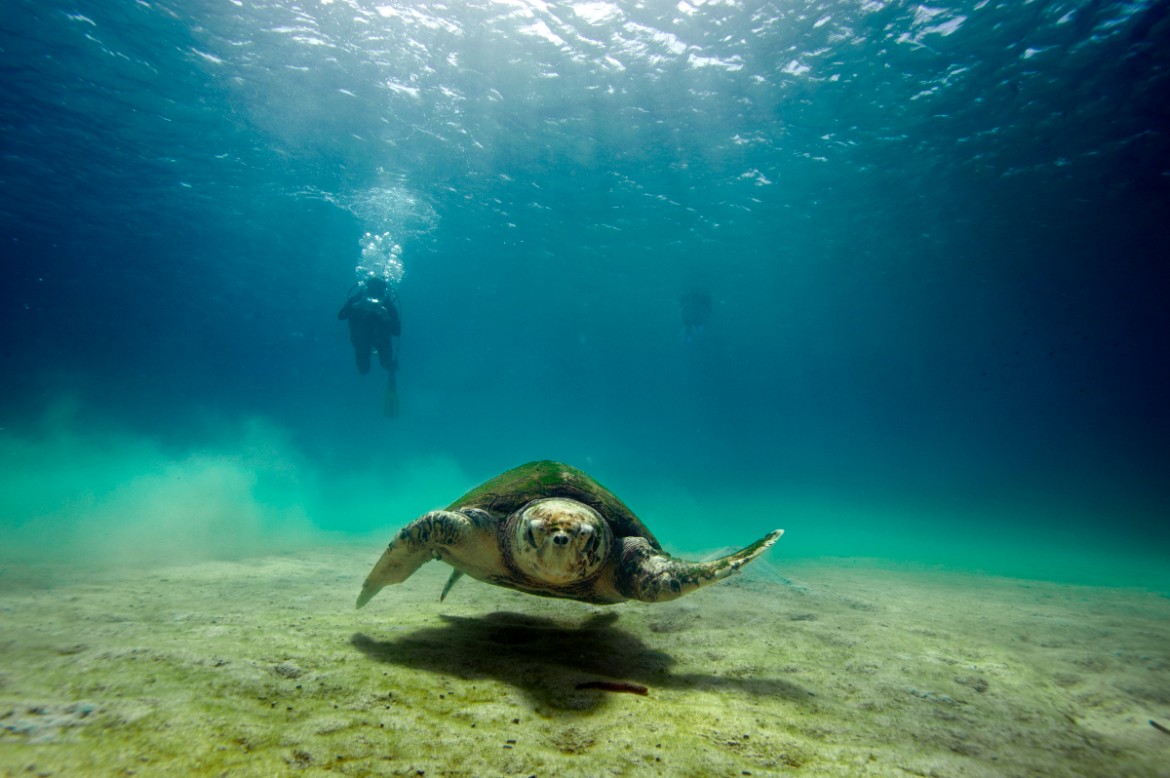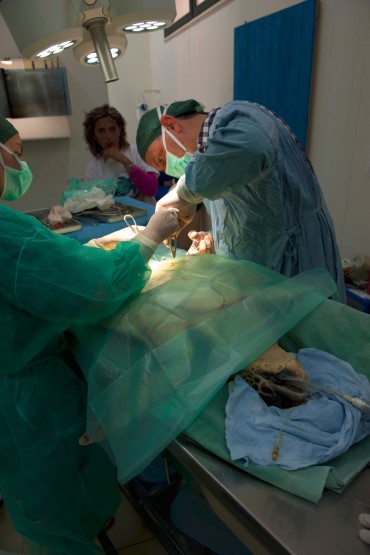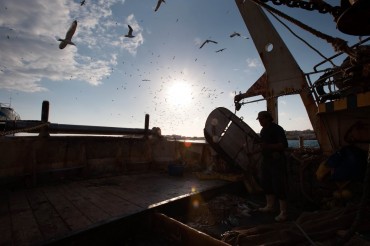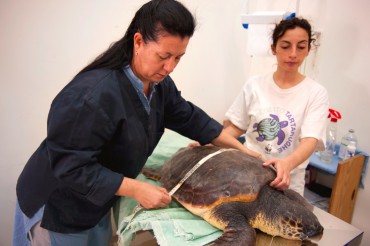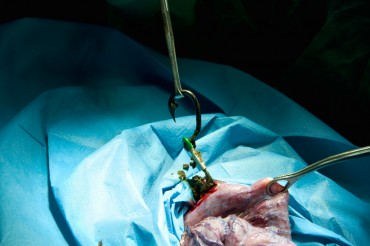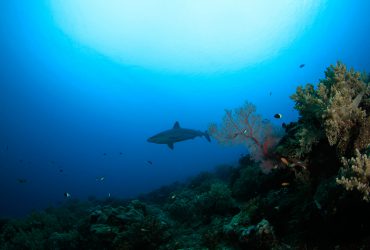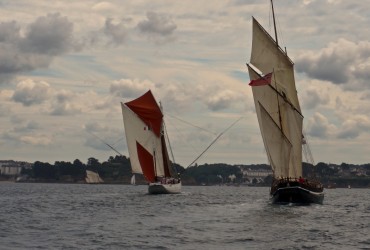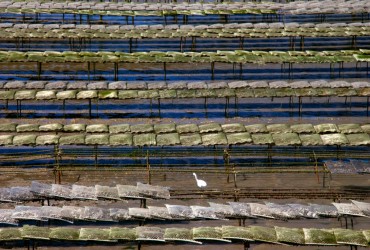Open-heart surgery
“Hand me the #12 scalpel, please”, asks Professor Antonio Di Bello. In the dark room, the forty years old surgeon grabs the blade handed by the nurse and, with a practised gesture, cuts through the piece of skin in front of him that is under a strong beam of light.
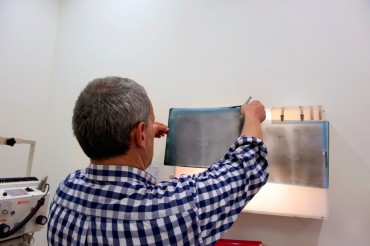 Strangely enough, the small amount of blood that dribbles isn’t red at all, it is purple. The surgeon then slowly and methodically starts to examine his patient’s intestine with his fingers. His focus is untroubled. Only the sound of the balloon allowing the anesthetised patient to breathe gives a tempo to the operation, much like a metronome. A few minutes later, he suddenly stops. He has just felt something hard under the tissue. He cuts again, and extracts with care a round and pointy metallic object that shines in the light. It is a five centimetres long fishing hook. The operation is only beginning. The string of nylon attached to the hook is still deep in the intestines. For over two hours, the surgeon will cut with the scalpel, and extract each time a good ten centimetres of nylon, remove it and then stitch the open tissues, until the totality of the nylon is out.
Strangely enough, the small amount of blood that dribbles isn’t red at all, it is purple. The surgeon then slowly and methodically starts to examine his patient’s intestine with his fingers. His focus is untroubled. Only the sound of the balloon allowing the anesthetised patient to breathe gives a tempo to the operation, much like a metronome. A few minutes later, he suddenly stops. He has just felt something hard under the tissue. He cuts again, and extracts with care a round and pointy metallic object that shines in the light. It is a five centimetres long fishing hook. The operation is only beginning. The string of nylon attached to the hook is still deep in the intestines. For over two hours, the surgeon will cut with the scalpel, and extract each time a good ten centimetres of nylon, remove it and then stitch the open tissues, until the totality of the nylon is out.
“The hook isn’t the most worrying problem, explain Daniel Freggi, one of the surgeon’s assistants that is protected by a mask. “The patient is capable of expulsing it along with its faeces without too much worry. The real danger comes from the nylon string that can create knots in the intestines. When that happens, the poor thing won’t survive long. That is why the professor can’t pull on the string to extract it. We have to cut the nylon by pieces of 10 to 15 centimetres.”
Two hours later, the stitching is complete and a nurse turns the light on. Once we recover from the few seconds of blindness, we all get our masks off. One of the assistants puts the lamp and the surgical instruments away, and undoes the green sterile sheets that were protecting the patient’s body to reveal… a marine turtle of 20 kilos lying on its back!
Back on its stomach, the reptile with a prehistoric face is slowly waking up. One last task has to be done with care. The tube that allowed the animal to breath artificially during the surgery has to be removed from its trachea. The veterinary surgeon can’t afford to make a mistake. Even sedated, the powerful beak could inflict a serious injury to his hand, and even cut a finger off. With confidence, the surgeon puts two fingers on the turtle’s nostrils and delicately removes the flexible tube from the animal’s mouth.
“It’s over!” is the conclusion the surgeon gives to the staff while stroking the turtle’s shell with affection.
After three hours in this small and cool room, I finally push the door to find myself outside in the heat of the day.
It must be 30°C. Under the blazing sun, a flock of seagulls is flying and squeaking around the wooden fishing boats that just docked in front of us. The fishermen are bringing in the catch of the day.
Philippe, with his camera around his neck, and the other members of the OCEAN71’s crew meet me. We are all a little baffled by the operation we just witnessed. Philippe looks at me with a grin, and says “You didn’t imagine finding such a place in the middle of the Mediterranean, did you?”
No indeed, when getting here on our sailing boat a few days earlier, I didn’t think that marine turtles would have a surgical centre on such an isolated island that is Lampedusa.
Not a second.
